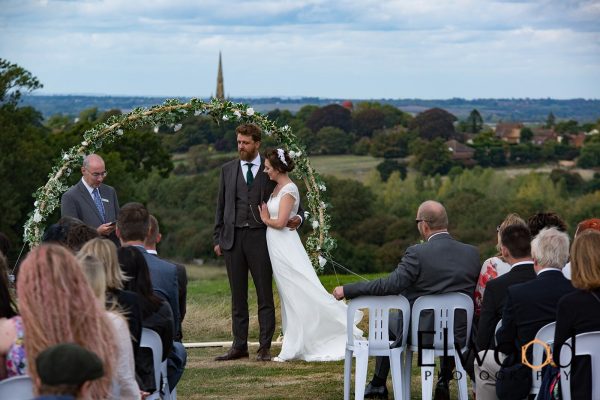
by Michael | Aug 8, 2022 | Blog
I can save you reading the whole blog!
My spoiler is to tell you that the answer to the question “should I use a wedding planner, or not?” is that it is your choice! However, things are not necessarily so cut and dried.
To start you thinking, I suggest the following:
Reasons NOT to hire a Wedding Planner
- Budget is an issue; hiring a planner even for on-the-day management would mean no funds available for wedding essentials
- You have the time and desire to source and hire all suppliers independently
- You haven’t clicked with any Wedding Planner, as they may not share your vision
- The venue has an amazing co-ordinator whom you trust, or you have a family member happy to take on the role of planner.
Reasons to Hire a Wedding Planner
- You have booked a dry-hire or a marquee wedding. It’s a much greater challenge than a hotel or standard venue because you have to organise everything from scratch.
- A Wedding Planner (WP) may be an outsider, but they can look at issues objectively, and make time-saving and money-saving suggestions. The fact that they have opinions does not imply that the process will be more complicated. it may even be the opposite.
- A WP is not necessarily more expensive than doing it all yourself. The WP is likely to have professional contacts who may offer a better price than those on the open market. Moreover, if your budget is tight, you can usually engage a WP for just a day or a week, although that obviously limits the offering.
- A Wedding Planner has a database of tried-and-tested wedding suppliers, ensuring you have a fabulous team working in synergy on the wedding day. And they can often negotiate discounts due to the repeat business.
- A good WP will work in an advisory role, and not impose their ideas on you! Their experience will allow them to make informed suggestions, but they know that the ultimate decision is down to you. Having said that, the WP may well be able to offer ideas for something unique. The ultimate decision is the couple’s, but the planner will showcase NEW ideas to them.
- Most importantly, perhaps, the WP offers the route to peace of mind, which is invaluable. The WP has that all-important check-list (on paper or in their head) and it is down to them to organise and confirm that everything is in order. This covers a huge range (from caterers to décor, from celebrant to photographer, from florist to make-up artist, and so on).
- The WP pre-empts issues and resolves disasters that might arise due to reasons beyond anyone’s control (and sometimes due to reasons within suppliers’ control too!).
- You might not be the most organised couple in the world and could be feeling frustrated and overwhelmed by the amount of work you need to put in to finalise the plans. The thought of organising a wedding is bringing you out in hot sweats!
- In some cases, couples organise a wedding themselves, but do need support co-ordinating all the suppliers. In these situations, a planner might come on board a few months beforehand to assist the couple.
Conclusion
As I said at the beginning, the final decision has to be down to you,
There may well be justification for arranging things yourself (or with the help of friends and family). In the majority of cases, though, as you’ll guess, I recommend using a WP, if for no other reason than the fact that they will take the weight of worry off your shoulders, not just on the big day but, potentially, for weeks in advance.
You can find reputable Wedding Planners at https://www.ukawp.com/directory-uk-wedding-suppliers/
You might find this article helpful: https://www.ukawp,com/should-i-hire-a-wedding-day-coordinator-
And this one:
Do I need a wedding planner, and what do wedding planners do?
Image: www.elwoodphotography.co.uk
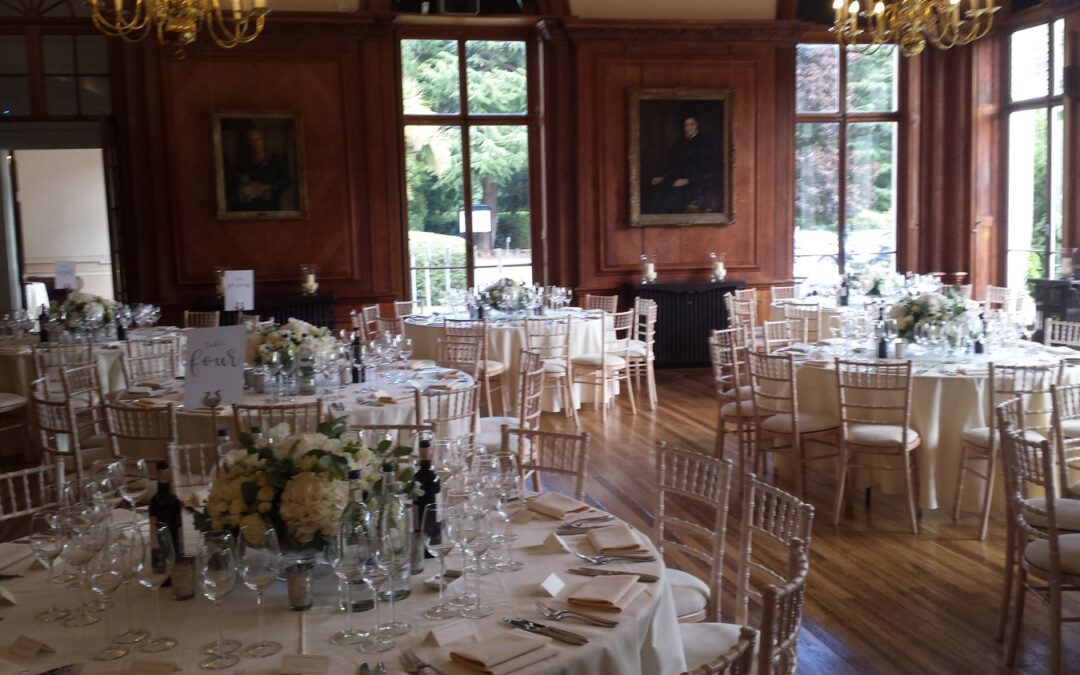
by Michael | May 11, 2021 | Blog
There are some expenses, when you arrange a ceremony, that may be indispensable, but others that you only think are.
You don’t need to spend money on a wedding planner …
- If your ceremony is going to be very small and simple
- If you’re prepared to source and reserve the best suppliers yourself
- If you’re willing to deal yourself with things that may go wrong
- If you can arrange necessary co-ordination between suppliers
You don’t need to spend money on a venue …
- If you think you can hold the event in your backyard
- If you’re prepared to manage the health and safety issues involved
- If you’ve got plenty of support
- If you’re keeping the reception very simple
You don’t need to spend money on a celebrant …
- If you’re not too bothered how professional the officiant actually is
- If you don’t want your ceremony to be really special
- If you’re not worried about the words being easily heard by your guests
- If you want to be calm and relaxed during the ceremony
You don’t need to spend money on caterers …
- If you’re not feeding or watering your guests
- If you’re prepared to buy in and prepare food and drink
- If you can organise the service, such as a buffet, (and clearing-up) yourself
- If you’re not serving up special dishes (eg vegan)
You don’t need to spend money on entertainment …
- If you don’t want a reception
- If you can provide something simple that works
- If you can’t find something entertaining to suit all
You don’t need to spend money on photographers/videographers …
- If you don’t want memories for years to come
- If you’ve got a friend or relative who can do this professionally (and doesn’t mind!)
- If you don’t want to share the event with absentees via livestream or social media
The list could go on! But I hope it gives you something to start on, as you plan your big day – and, if you decide to use a civil celebrant, please have a chat with me!
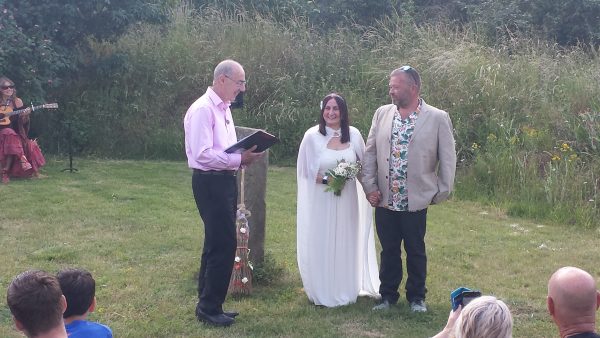
by Michael | Nov 10, 2020 | Blog
A Civil Celebrant can play an immense part in the success of a ceremony. But not everybody understands how to get the best from one.
The first misconception is that a civil celebrant is the same as a wedding, or event, planner. No, it’s not!
Wedding Planners
The planner’s job normally includes booking the venue and organising suppliers. Examples include florists, caterers, photographers, make-up artists, musicians, entertainment, and decor. Then they supervise the day itself.
Those are rarely, if ever, the brief of a civil celebrant. Our role on the day is confined to the ceremony only (although that can be responsibility enough!).
Civil Celebrants
People are not always aware that we do more than just show up on the day. One thing a civil celebrant does (in common with the planner) is to put in a shift or two well before the wedding day itself.
The hidden bits
The process usually begins with an initial conversation (pre-COVID, face-to-face or, now, on Skype or Zoom). The idea is to establish a picture of what the client wants (and what is practical) and to see if a working relationship is viable.
Then the civil celebrant will put in research, as a draft ceremony is prepared, and plenty of writing. Once the draft is ready, it will be e-mailed for the client’s approval. Then there’ll be further contact. Tweaks are often made before the final version is agreed.
Well before the big day, the couple will have agreed with the celebrant the exact text of the ceremony. Thus no unpleasant surprises will lie in store. Their dream ceremony is ready.
On the Day
The one part of the day the wedding planner has no control over is the conducting of the actual ceremony. And that’s the celebrant’s big moment.
On the day, our role is to conduct the ceremony. Very occasionally, we are around for other parts (canapes, ‘breakfast’, even the reception). We can be asked to co-ordinate events like a toastmaster, but that is not the job specification of a regular Civil Celebrant.
The bit of the job of a celebrant that the public sees is on the day itself. Ideally, we arrive at the venue in very good time, check all is set up correctly, make contact with the major players (event planner, couple’s family, musicians, photographer, etc.) , meet the ‘team’ (eg Best Man and ushers etc.) and calm the Groom down! If possible, we let the bride know we’ve arrived.
Then we’re in charge of the ceremony. We conduct it from the ‘front line’ calmly, clearly, professionally and with humour (as appropriate). We co-ordinate with the other ‘actors’. We ensure the couple are at their ease. We have to be ready to react suitably to the unexpected (you’d be surprised!), and make the ceremony memorable, enjoyable and special for all concerned.
The public part of what we do only extends to the half-hour (or so) ceremony, plus the hour beforehand. But plenty of homework goes in earlier to produce the desired result.
And that’s what a civil celebrant can do for you!
Feel free to have a chat to find out how a personalised ceremony can work for you.
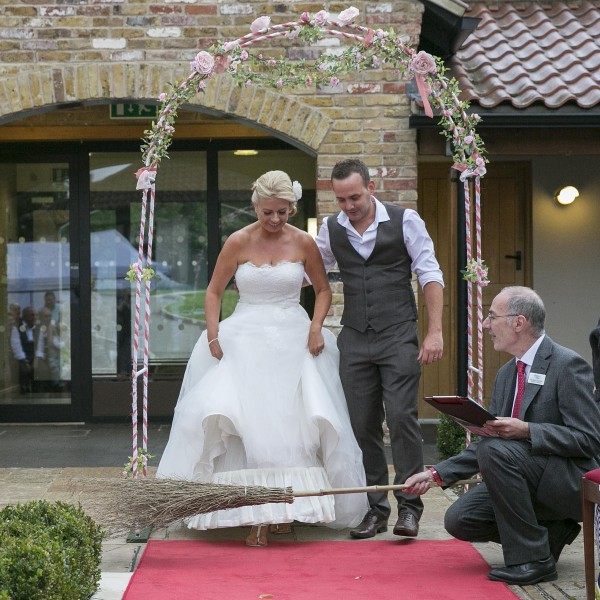
by Michael | Mar 2, 2020 | Blog
I know we’re nowhere near Halloween, but there is always the potential for wedding nightmares!
Wedding Nightmares
How many of these situations would you think I have witnessed as a wedding celebrant?
- A fire
- The groom forgetting the ring
- A fist-fight among guests
- The bride’s car getting lost
- A collapsing staircase
- The groom’s father’s trousers falling down
- A photographer falling over
- The Best Man two hours late because of a job interview
- The bride being too nervous to recite her vows
- The bride’s mother walking out during the Best Man’s speech
You are probably expecting me to say that I have witnessed all of them, but, actually 3, 6, 9 and 10 did not happen on my watch, and 5 happened before the wedding. However, any of these – and many, many more – could have taken place. You might be able to add to the list yourself!
In fact, there’s virtually no limit on what could go wrong. In the vast majority of cases, though, nothing at all will go amiss throughout the entire event.
In fact, most of what does go wrong is not even noticed by most of the attendees.
Solutions
However, it’s natural to worry.
One solution is to use a wedding planner. You pay them to take the burden off your shoulders. And experienced ones are good at improvising solutions.
But what if
you don’t book a wedding planner?
Then it’s
how you prepare – and how you react – that makes the difference.
If you’ve been careful and booked professional suppliers (celebrants, venue, florists, DJs, photographers, make-up artists, caterers, the bridal car, and so on), then you should be OK. It wouldn’t do any harm, though, to ring round the week before the wedding and make sure they do have your reservation in their books! There may be some last-minute (mutual) questions too.
Good for
your peace of mind, at the very least – and suppliers are human too!.
On the day, use your checklist (you are making lists, haven’t you?!) and start early. If you have briefed your team properly, everyone will know what they are meant to be doing, where and when.
And if something does go wrong, goodwill normally rides to the rescue. Your team will almost certainly rally round, and help sort out the problem. And if the worst comes to the worst, your family and friends will surely show understanding and tolerance. Things do go wrong, after all, in life’s rich tapestry. If people see that efforts have been made to sort out the issue, then the criticism will probably be nothing stronger than a few tuts.
So relax and
enjoy your big day, secure in the knowledge that you have prepared well and
have a fine team on side. Then everything will flow and you’ll have an
unforgettable day – for the right reasons!
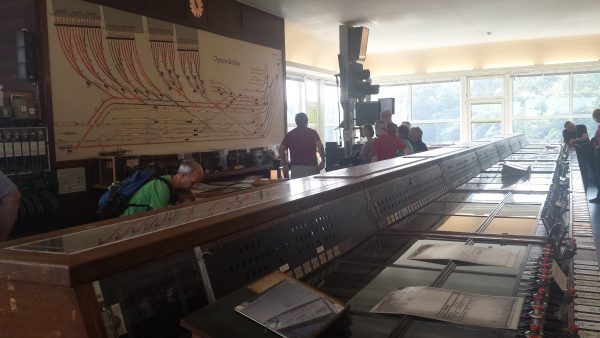
by Michael | Sep 27, 2018 | Blog
Weddings can be honey-traps. People on the make. Look at wedding planners, for example.
These people may well charge thousands of pounds for what appears to be about 4 hours’ toil. The work might be something you could do yourself too.
Money for old rope?
But, if we dig a bit deeper, we may actually not be talking rip-offs at all.
In reality, the wedding planner spends many hours before the wedding day, planning, communicating, organising rehearsals, meeting suppliers, travelling and dealing with paperwork.
Similarly, people often think that civil celebrants, like myself, just turn up on the day and present the ceremony. Does that justify our fee? But what about all the research and crafting that goes into the ceremony, the professionalism of the presentation, not to mention the time spent communicating so that the client ends up with their dream ceremony?
Likewise, photographers, florists, DJs and other professionals appear on the day, but don’t assume that that is the only time that they are working on the wedding!
Far from it.
Rant over. Back to the Wedding Planner!
Choosing your Wedding Planner
Ideally, you will know someone who has worked with the wedding planner and can personally recommend her/him. Failing that, their website will help, but an exploratory phone call – have a list of questions ready – will give you an idea whether you even want to work with this particular person.
Your wedding is a major event. You don’t want things getting forgotten or going wrong. So leaving things to amateurs could be a huge risk.
Cost
You can expect professionals to have experience, training and passion. Those qualities – rightly – don’t come cheap. Skill and specialisation are keys in this business, and you have to pay for these.
Wedding professionals are not like many solicitors, invoicing you per e-mail and itemising each expense. You pay the full fee and this may encompass many planning meetings, calls and consultations, not to mention countless e-mails with the client over the course of what may be a year or more.
Benefits
Like a civil celebrant, again, each wedding planner values their reputation. They can’t afford to mess up, so the professional goes the extra mile to ensure things don’t go wrong. Actually, something probably will go wrong at some point in the day – that’s the way it is. But the wedding planner can reduce and minimise any negative impact.
The professional wedding planner will offer advice – not for their own convenience, but for your benefit. Their experience and knowledge can be invaluable.
You may actually save money by employing a wedding planner. If you are taking on the hire of a venue or marquee, arranging the food, drink and catering, crockery, silverware, rentals, flowers, centerpieces and the rest, all by yourself, not only will that set you back more than you might expect, but you won’t have peace of mind (especially if you are a perfectionist).
So weigh up the pros and cons, inform yourself, and do what makes most sense to you.





